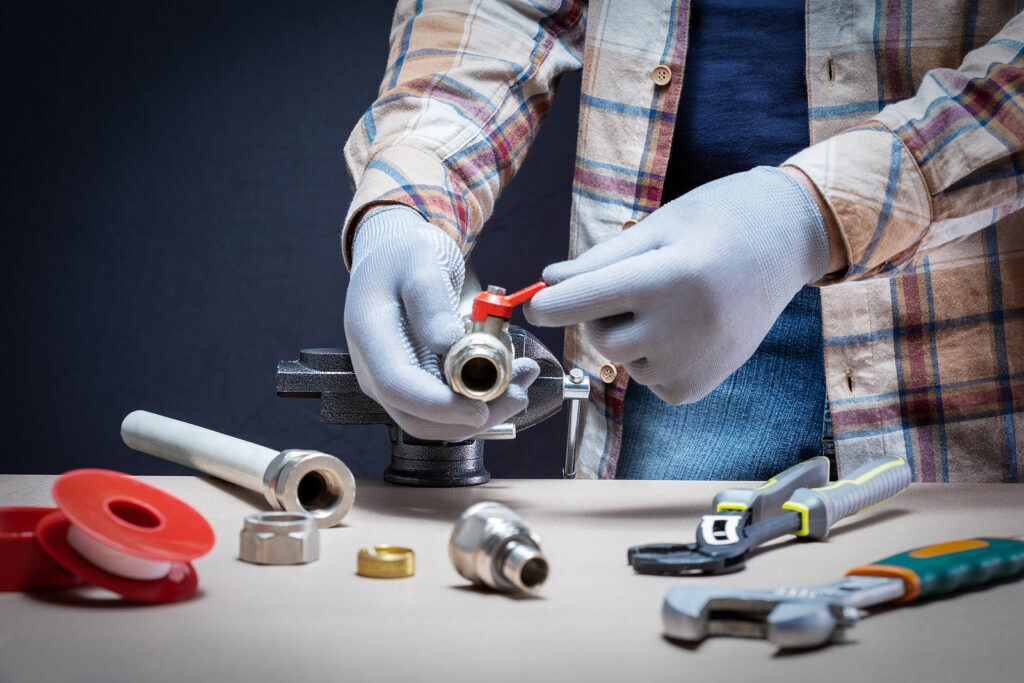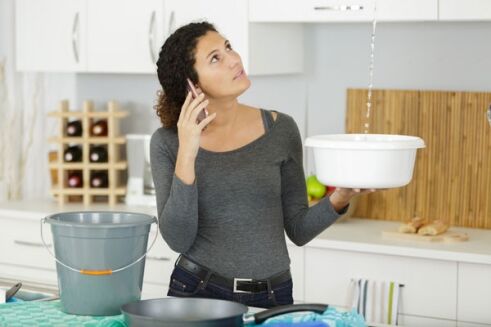How do you feel about Expert Tips for Emergency Plumbing Repairs?

Plumbing emergencies can strike at any time, causing stress and potential damages to your home. Whether it's a ruptured pipeline, a stopped up drainpipe, or a leaking faucet, knowing just how to handle the circumstance up until a professional plumber arrives can conserve you from additional complications. This write-up supplies vital emergency pipes ideas to assist you reduce damage and reclaim control throughout a plumbing crisis.
Switch off the Water
The primary step in any type of plumbing emergency situation is to turn off the supply of water. For localized concerns, such as a dripping tap or bathroom, turn off the shutoff near the component. In the case of a significant leakage or burst pipeline, find your home's major water shut-off shutoff and turn it off promptly. Knowing the place of these shutoffs in advance can conserve important time throughout an emergency.
Address Tiny Leaks with Short-term Solutions
Small leakages can quickly end up being significant issues if left uncontrolled. Utilize these short-lived fixes until expert aid arrives:
While these fixes aren't long-term, they can aid decrease water loss and damage.
Unclog Drains Pipes Securely
A clogged drain can be an aggravating and unpleasant concern. Right here's just how to tackle it:
If these approaches do not function, prevent using excessive force, as it may get worse the clog.
Take Care Of Overflowing Toilets
An overruning commode can trigger instant mayhem. Right here's what you need to do:
Turn off Your Hot Water Heater
In specific emergencies, such as a ruptured pipeline, it's a good idea to shut off your hot water heater. This stops overheating or damage to the device when water stops flowing. Switch off the power supply to the water heater (electric or gas) and allow it cool down to stay clear of prospective risks.
Momentarily Quit a Burst Pipeline
A burst pipe can bring about considerable water damage in mins. To reduce the concern:
Call an expert plumber promptly to deal with the trouble permanently.
Take Care Of Frozen Pipeline Meticulously
In chillier climates, frozen pipelines are a typical emergency situation. If you think an icy pipe:
Prevent Additional Damages
Taking fast action to lessen damages can save you money and time in the future. Here's exactly how:
. Have an Emergency Pipes Package
Prepare a standard plumbing emergency set to take care of small issues efficiently. Your set needs to consist of:
Having these tools available can make a considerable distinction in your capacity to take care of emergencies.
Know When to Call a Professional.
While quick fixes can help briefly, specific pipes concerns call for prompt specialist focus. Call a plumber if:.
Immediately calling an expert makes sure the problem is fixed properly and avoids further problems.
Conclusion.
Plumbing emergencies can be frustrating, yet with the ideal expertise and devices, you can handle the situation effectively until aid gets here. By switching off the water system, dealing with little leaks, and making use of short-lived solutions, you can lessen damage and keep your home safe. Bear in mind, these ideas are momentary services; always get in touch with a qualified plumbing technician to deal with the root cause of the trouble. Prep work and quick thinking are your ideal allies in any type of plumbing emergency situation.
Emergency Plumbing: Quick Steps to Minimize Damage Before Help Arrives
Welcome to ?our? helpful guide,? “Emergency Plumbing: Quick Steps ?to ?Minimize Damage ?Before Help? Arrives”. Plumbing emergencies can lead to unanticipated ?stress and potential property damage if not addressed promptly and effectively. However, ?while professional help is definitely essential? in? such situations, there are things that you ?can ?do ?to minimize damage ?before a? plumber arrives. In this detailed, informative,? and easily? understood post, we provide you with practical,? expert advice on ?how to mitigate the? impact of common? plumbing ?emergencies. From identifying? the problem? to implementing temporary fixes,? this ?guide ?can equip you? with the? knowledge? you ?need to ?act swiftly and ?decisively,? potentially saving you? a lot ?of time, ?money and heartache. Imbibe these? critical insights and turn them into action, because when it comes? to plumbing emergencies, every minute? counts!
Understanding the ?Urgency of Plumbing Emergencies
Regardless ?of how well-maintained your? plumbing system ?may be, emergencies can happen when least expected. ?Burst pipes, ?leaks, blocked drains, gas ?leaks, and water heater issues are just samples of circumstances that call for immediate professional ?help. What? do you do when such emergencies occur? Most? importantly, how do? you minimize damage before help arrives?
First? and? foremost, stop the water flow, this ?is the? most immediate way to prevent extensive water damage. Locate your ?home’s main water valve and turn it off. If? the emergency is? a localized one,? like a? sink overflow, turning off the specific fixture’s valve under the sink will suffice. Secondly, ?switch off the electricity. ?This is ?crucial, especially ?when the? water ?leak is ?close to electrical? outlets or appliances. Lastly, clear the area; move furniture, rugs, ?and other valuables out of the ?way, especially if they are at risk? of water damage.
Recognizing Common? Signs ?of Plumbing Issues
Recognizing plumbing issues as soon as? they emerge can ?save you? from pricey repairs and potential ?water damage. For ?instance, slow drainage might suggest a blockage in? your pipes that,? if not dealt with, could result in ?a damaging overflow. Keep an eye out for? continuous dripping from your faucet even when? turned off ?- this is a clear ?sign of a faucet? issue that’s wasting water and increasing your? bill. A toilet that frequently runs? or takes a ?long time to ?refill could hint at an inner? part malfunction, while ?unusual? sounds ?- banging, whistling or gurgling – coming from your pipes signal abnormal flow or air in? the pipe.?
Increasing water bills without extra usage is also a sign of a possible leak in the system ?that causes water wastage.? Noticeable water stains or lush patches ?in? your? yard might indicate an outdoor leak. Lastly, low water ?pressure could imply a clog, a pipe problem, or even a city supply issue. Recognizing ?these signs early can provide you with ?a valuable? opportunity to address minor issues before ?they exacerbate ?into major plumbing emergencies. ?Signs? of? Common Plumbing Issues: Slow drainage Continuous dripping from? faucets High? water bills Unusual noises from ?pipes Lush patches in? yard Low water ?pressure
Preparing? an Emergency Plumbing Kit for Quick Action
A well-equipped? emergency? plumbing kit can mean the difference? between a minor ?inconvenience ?and? a? significant home ?disaster. To be? prepared for unexpected plumbing? emergencies, your ?kit should carry all the ?essentials that can help you limit ?the damage before professional help? arrives. The ?golden rule is start with? the basics? and then ?add tools as you navigate through different plumbing problems. Following are the core essentials you must? have? in ?your emergency ?plumbing kit:
Plunger: ? This ?is a versatile tool? that can clear most minor clogs in ?sinks, toilets and? drains. Pipe Wrench: Essential ?for tightening and loosening? glazed? pipes. Pliers: Handy for gripping? small objects. Screwdriver ?Set: Used for ?removing ?or? tightening different fixtures. Teflon ?Tape: ? Can be wrapped around? fittings? and joints to ?prevent minor? leaks. Bucket: A simple bucket can be used for multiple purposes from catching leaks ?to carrying tools or storing? removed? parts. Effective DIY Methods to Minimize Damage Before Help Arrives
When you promptly recognize a plumbing emergency, you can employ several DIY methods ?to mitigate potential harm while waiting for a professional plumber. ?Initially, it’s crucial? to ?turn? off the water supply ?to ?stop further flooding. If you’re encountering a local problem—like a? record-breaking overflow? from your toilet—its dedicated ?water valve? will usually be ?located ?behind the fixture. However,? if the? issue seems to be? more pervasive, you can cut your ?whole house’s water supply,? typically found near ?your water meter or at the? street.

As an avid reader on Plumbing Emergencies: Tips on What To Do Before, I assumed sharing that information was a good thing. Do you know about somebody else who is interested in the niche? Be sure share it. We take joy in your readership.
Call Today